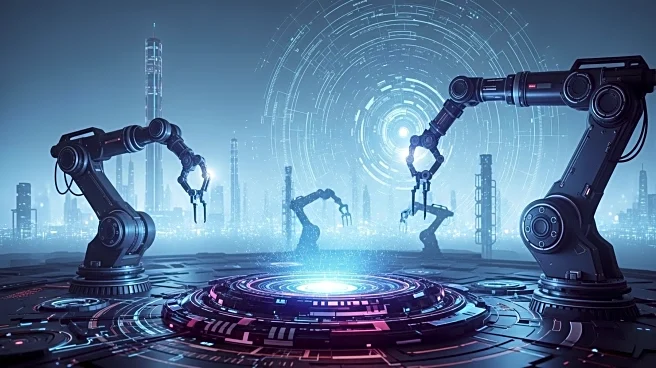What is the story about?
What's Happening?
A recent PwC survey of over 500 U.S.-based executives from industrial sectors highlights a pressing need for companies to reinvent their operations to avoid extinction by 2035. The survey indicates that reliance on distant offshore suppliers will become a liability, prompting a shift towards supply chain proximity. Executives are moving towards flexible, modular systems and self-healing supply chains, with AI playing a significant role in redefining job roles. The survey underscores the obsolescence of traditional industry practices and the necessity for innovative approaches.
Why It's Important?
The findings from the PwC survey underscore a transformative period for U.S. industries, where traditional practices are being replaced by innovative strategies. The shift towards modular systems and AI-enhanced roles is expected to increase efficiency and adaptability, crucial for maintaining competitiveness in a rapidly changing global market. Companies that fail to embrace these changes risk becoming irrelevant, impacting their ability to sustain growth and profitability. This industrial realignment is pivotal for ensuring long-term resilience and success.
What's Next?
As companies begin to implement these changes, the focus will be on integrating AI into workforce roles and developing modular systems. Executives will need to prioritize strategic realignment to ensure their operations are adaptable and responsive to market demands. The transition may involve significant investment in technology and training, as well as a reevaluation of supply chain strategies to enhance proximity and reduce dependency on offshore suppliers.
Beyond the Headlines
The push for industrial reinvention raises ethical and cultural considerations, particularly regarding the integration of AI into the workforce. Companies will need to address concerns about job displacement and ensure that employees are equipped with the skills needed to thrive in an AI-enhanced environment. This shift also highlights the importance of sustainable practices and the role of technology in driving environmental responsibility.














